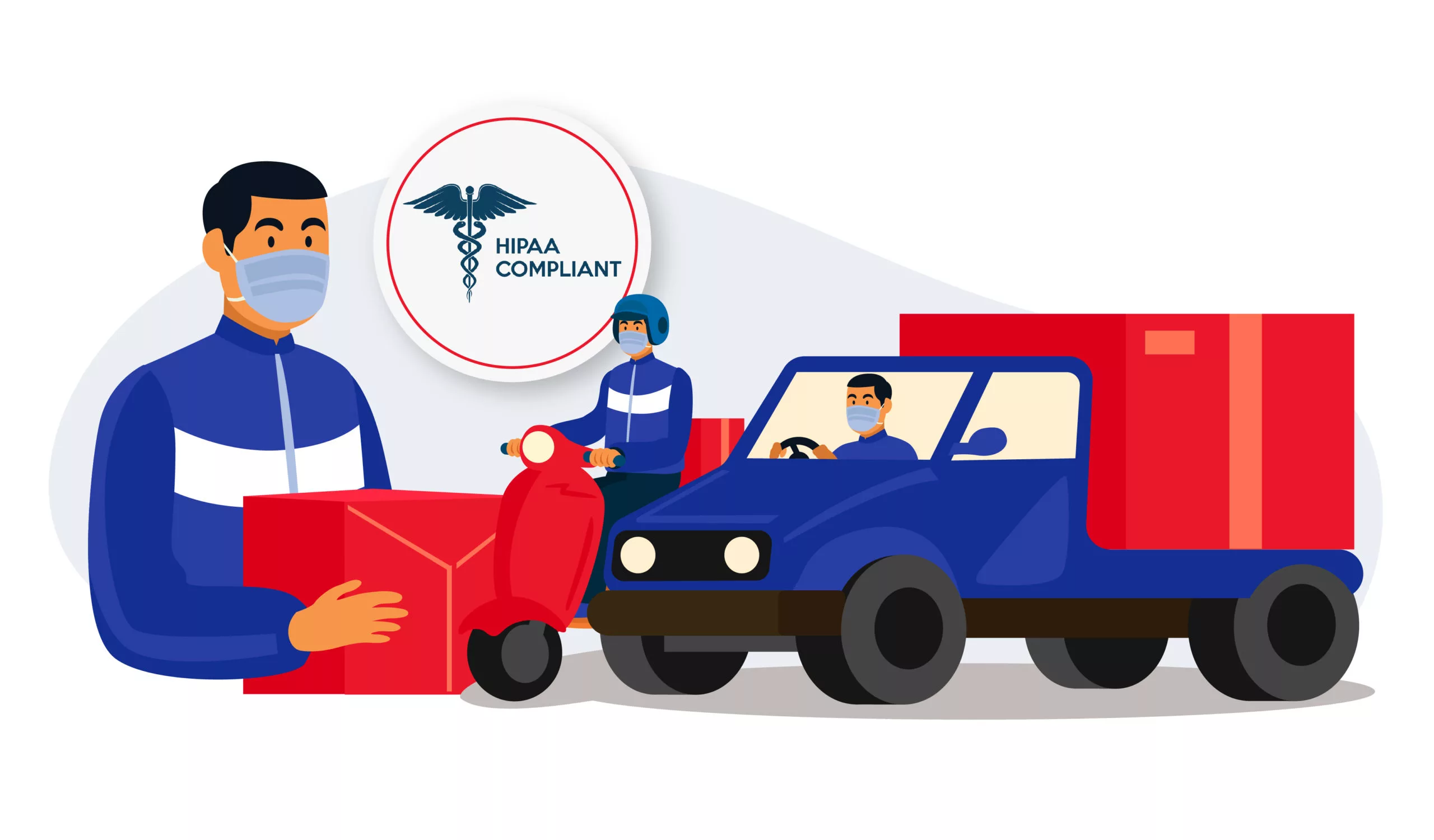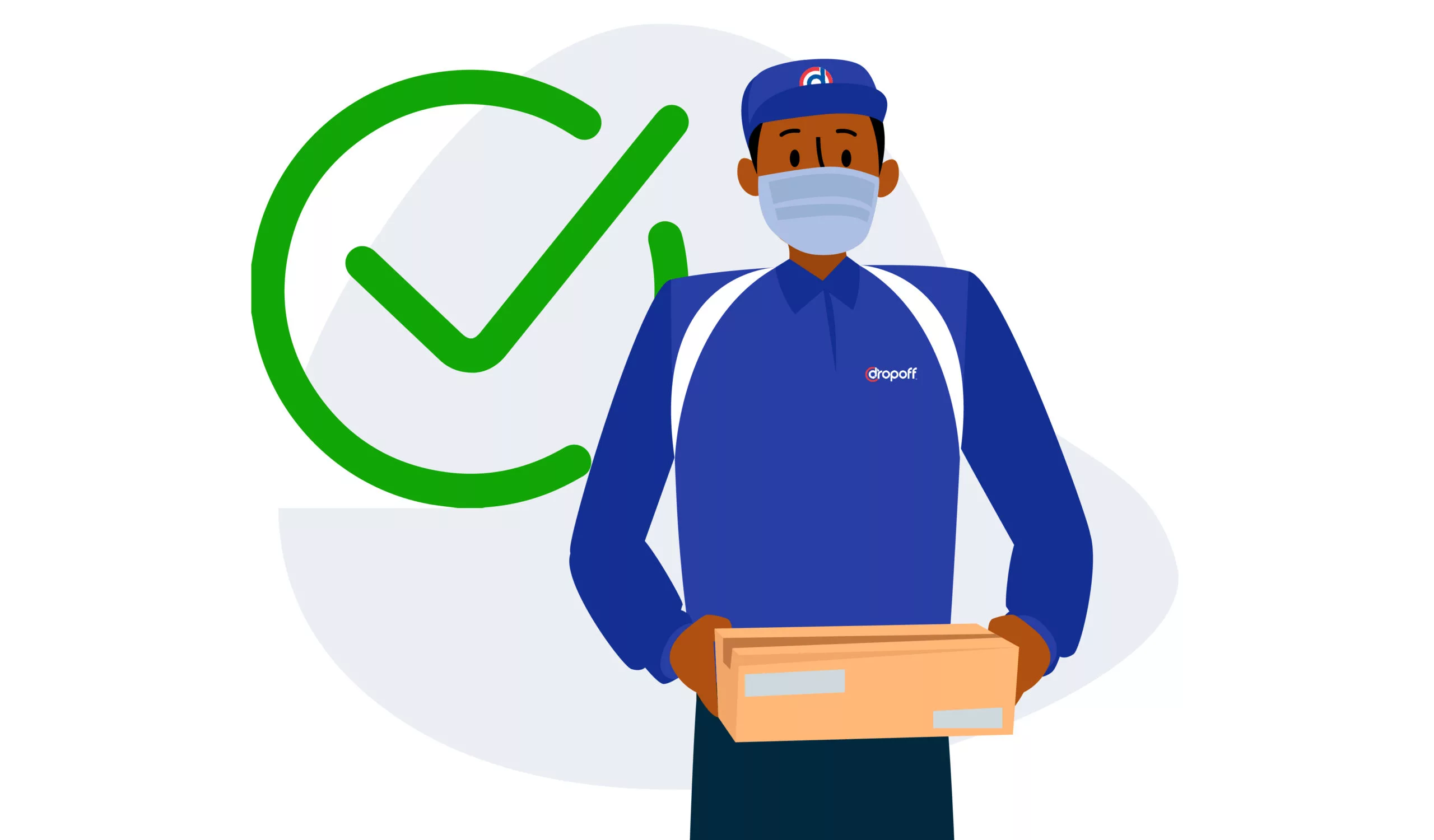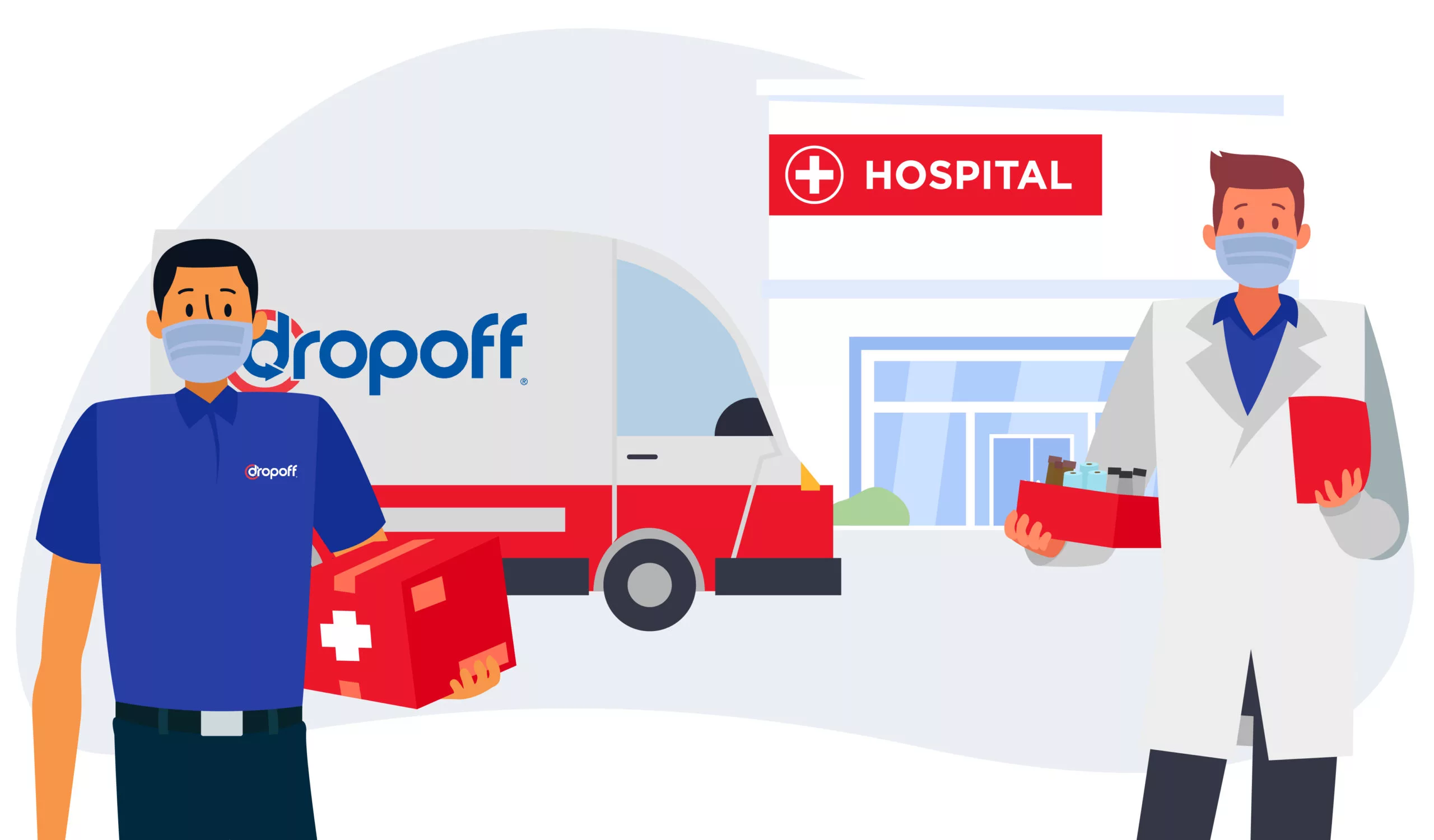Must-Have Features for a Great Medical Delivery Service

Medical couriers are responsible for transporting medical specimens and records between facilities. Because of the importance of their role, it’s critical that medical couriers follow best practices to ensure the safety of the specimens and records they transport.
In this blog post, we’ll explore what’s involved in medical courier best practices and why it matters. We’ll also provide tips for ensuring the safe transport of medical specimens and records.
What Is a Medical Courier?
Medical couriers transport medical equipment and items between different healthcare facilities. They manage pickups and deliveries, take orders, and send invoices to clients. They also document all movements of medical property or equipment.
In some cases, medical couriers may also transport patients. Medical couriers are typically employed by hospitals, laboratories, and other healthcare organizations.
Most medical courier services require their employees to complete a training program that covers safety procedures and the proper handling of medical specimens and supplies.
How Fast Is the Medical Courier Industry Growing?

The medical courier industry is becoming more popular because of the growth in the medical and biotech industries. Medical and biotech companies do not have their own couriers, so they hire third-party logistics providers that offer specialized solutions.
As of today, the medical courier market is estimated to be worth $7.1 billion by 2027. It is forecast to grow at a rate of 5.5% from 2022 to 2027.
The market has been growing and will continue to grow because of the adoption of new technology and cloud assistance. This technology has allowed businesses to reach more people in a cost-effective way.
There are many high-demand services that medical couriers offer, such as STAT delivery, express delivery, same-day delivery, and shipment tracking. Hospitals and clinics may soon monopolize the medical courier market as they start to carry more medical items in-house. This will leave other businesses struggling to find a way to compete.
In the healthcare industry, the need for speed directly impacts patient care.
What Are the Responsibilities of a Medical Courier?
Being a medical courier comes with many responsibilities as the products being transported are of extremely high value. As a medical courier, you are accountable for the following things:
- Understand the instructions that come with medical items.
- Store medical items securely in the delivery vehicle.
- Make sure that the paperwork matches each item.
- Make sure that all the paperwork is correct.
- Plan a route to a destination. This includes considering traffic and how far the destination is from its starting point.
- Collect and deliver medical items in a timely manner.
- Make sure that the package recipients sign for it and that the designations are correct.
- Make sure that each item is delivered safely.
- Keep track of mileage and car maintenance in the company logbook.
- Make sure to count and inventory all the medical items that need to be collected or delivered.
- Perform all duties within HIPAA regulations.
Medical Courier Requirements
Below are some of the key requirements for becoming a medical courier. We take a closer look at these requirements in our guide on how to become a medical courier.
- HIPAA certification — verifies that your company is compliant with the Health Insurance Portability and Accountability Act.
- Valid driver’s license and clean driving record.
- Understand medical jargon, HIPAA rules, ICD, and CPT coding.
The Best Practices for Medical Couriers
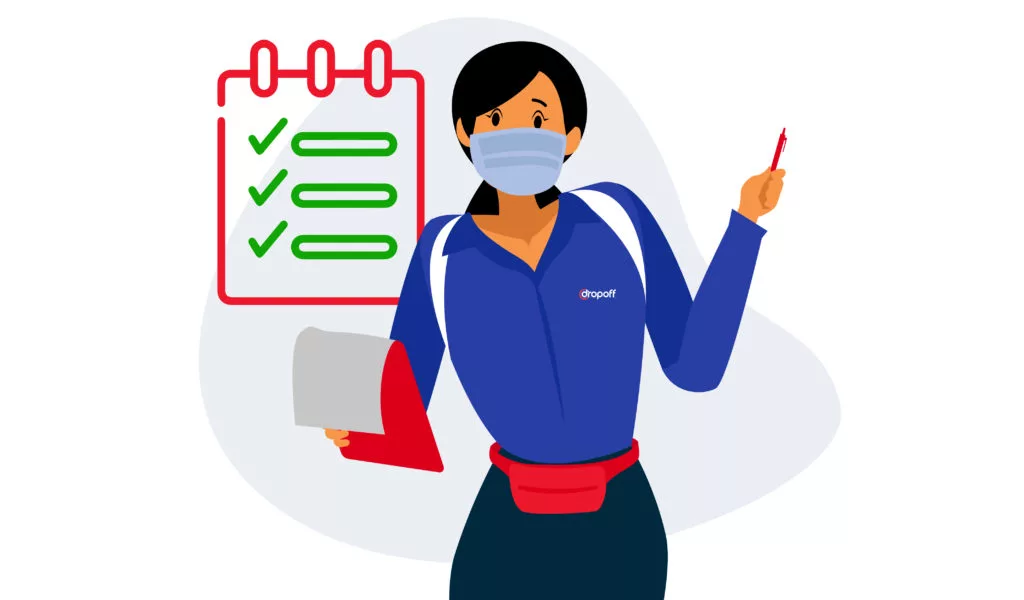
1. Compliant with HIPAA Regulations
All medical couriers should have HIPAA certification. This is because HIPAA is a federal law that protects the privacy of medical patients. The law requires companies like insurance companies and medical facilities to be very careful about who has access to medical information. Patients are also able to have more control over who can see their information.
If patient data is leaked, it can have serious consequences for the perpetrator. That’s why it’s important to have HIPAA certification if you’re working with any patient information.
Here is everything you need to know about staying HIPAA compliant when shipping with medical couriers.
The majority of HIPAA violations happen because employees do not have enough training. They may not know the regulations or how to properly protect people’s information.
Recently, there have been several violations where employees mishandled records or disclosed confidential information, lost or stolen devices with sensitive medical information on them, unauthorized parties had access to patient files or released personal information without written consent from a patient.
In addition, it is important to hire only trained medical couriers when delivering high-value specimens such as blood.
2. Compliant with Other Relevant Regulations
Medical couriers must follow a lot of rules from different places like state, federal, and professional organizations. This includes the Air Transport Association and the Department of Transportation. They also have to be able to work outside of normal hours and their vehicles need to have refrigeration abilities.
3. Good Link Between Courier and Dispatch
The link between courier and dispatch is important for the privacy and security of a medical shipment. The dispatch team should be able to monitor and communicate with a driver at every step of the itinerary, which is only possible if GPS technology offers real-time location information.
This will help patients, providers, and dispatch calculate the estimated time of arrival easily so that the delivery is as safe and fast as possible.
4. Established Chain of Custody
To establish a chain of custody, couriers need to send email notifications to providers and solicit signatures after a delivery has been completed. This will enable both parties to verify that the delivery was made on time and in good condition.
5. Patient’s Welfare Comes First
The courier must always put the patient’s welfare first. They need to be polite and professional when dealing with patients and their families. The courier should try to understand the stress that the patient is under. After all, keeping patients alive, healthy, and happy is what medical delivery is all about!
Is Your Medical Courier Providing Quality Service?
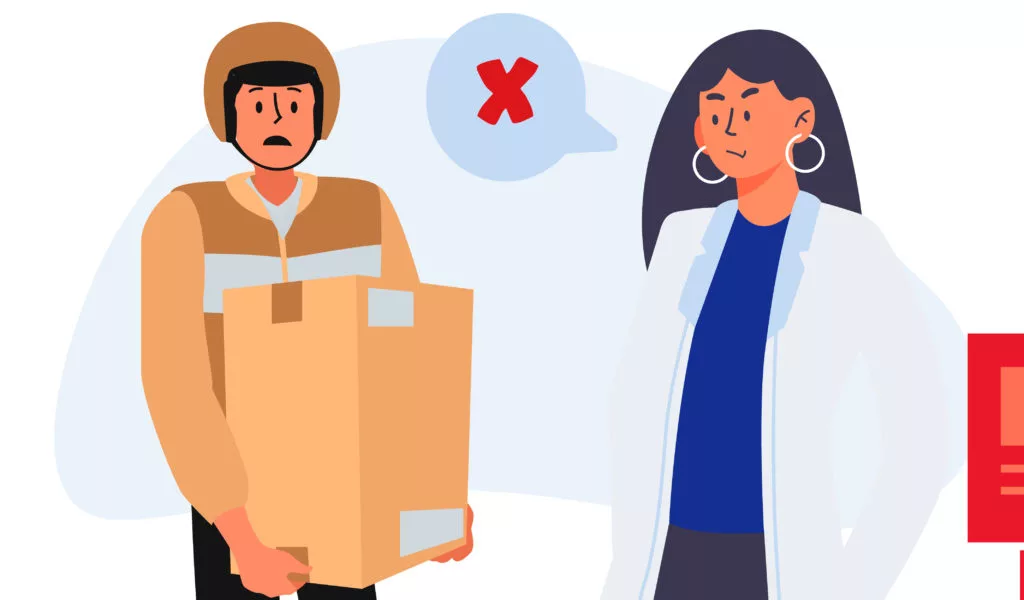
In today’s healthcare landscape, the importance of quality medical courier services cannot be overstated. Not only do medical couriers play a critical role in ensuring that patients receive their medications on time and in good condition, but they also help to ensure that hospital staff can focus on providing care instead of chasing down deliveries.
Healthcare courier services companies are now delivering confidential patient documents, which include patient medical history bills for reimbursements and other imaging reports. This is because of the global demand for vaccines, which require various APIs (active medicine ingredients) that need to be integrated with a non-hazardous approach. Confidentiality and low product damages are important when it comes to fulfilling medical needs.
When choosing a medical courier, it is important to consider the following factors:
- Reliability: Can you count on the courier to deliver your medications on time, every time?
- Professionalism: How well does the courier interact with your patients and hospital staff?
- Tracking: Does the courier provide real-time tracking of your shipments so that you can always know where your medications are?
- Insurance: Does the courier carry adequate insurance in case of loss or damage to your shipments?
By taking the time to consider these factors, you can be sure that you are choosing a medical courier that will provide quality service to your patients and hospital staff.
Looking for a medical courier service? At Dropoff, we specialize in healthcare logistics. We have a team of experts who comply with healthcare regulations when delivering medical specimens. Plus, we have multi-advanced tracking technology allowing you complete visibility.
Challenges in the Medical Delivery Space

1. Implementing Real-Time Transparency
Real-time transparency is a challenge for medical couriers because it requires them to be constantly available to answer questions and provide updates on the status of a delivery.
This can be difficult to manage, especially during busy times or when unexpected delays occur. In addition, medical couriers must be able to maintain a high level of accuracy when tracking deliveries, as any mistake could have serious consequences.
2. Ensuring Reliability
One of the other challenges that medical couriers face is ensuring the reliability of their service. Because they are responsible for transporting critical items such as life-saving medications and surgical supplies, they must be able to meet stringent deadlines. This can be difficult, as unexpected delays can occur when picking up or delivering items.
3. Implementing Digitization
Another challenge that medical couriers face is digitization. This is the process of converting medical records into digital forms. The advantage of digitization is that it can store records electronically, which makes them easier to access and share.
This can be a challenge because it requires couriers to be familiar with technology and be able to use it effectively. In addition, digitized records can corrupt themselves without backup.
For example, many hospitals now use electronic health records (EHRs), which medical courier services can access to track patient information and specimen delivery.
4. Keeping Up with Compliance and Regulations
The ever-changing landscape of compliance and regulations that medical couriers face can be daunting. Keeping up with the latest rules and regulations is a full-time job in itself. In addition, medical couriers must also comply with an ever-growing list of state and federal regulations.
The failure to comply with even one of these regulations can result in hefty fines or even the loss of their courier license. As a result, many medical couriers choose to partner with a compliance consultant to ensure that they are always up-to-date.
Basically, a compliance consultant can help medical courier businesses develop policies and procedures to ensure compliance with all applicable laws and regulations.
5. Aiming for Sustainability
Sustainability has become a buzzword in recent years, but what does it really mean? Put simply, sustainability is the ability to meet the needs of the present without compromising the ability of future generations to meet their own needs.
For medical couriers, sustainability is a challenge because they need to find ways to minimize their impact on the environment while still providing an essential service.
One way they can do this is by using alternative fuel sources such as electric vehicles or biodiesel. They can also reduce their mileage by using GPS technology to plan the most efficient routes.
By making a few simple changes, medical couriers can help make the world a little bit more sustainable.
Trends You Can Expect to Rise in the Medical Courier Industry
The global medical courier industry is constantly expanding as a result of rising trends in same-day and express delivery services. Here are a few other trends you can expect to rise in the medical courier sector:
- Medication adherence and accuracy
- Efficient packaging and route efficiency
- More affordable delivery rates
Looking to improve the logistics at your pharmacy? Check out this guide on how to start same-day delivery services in your pharmacy.
If you run a medical lab instead, we have a guide on how to launch same-day delivery services at your medical lab.
How Dropoff Can Help
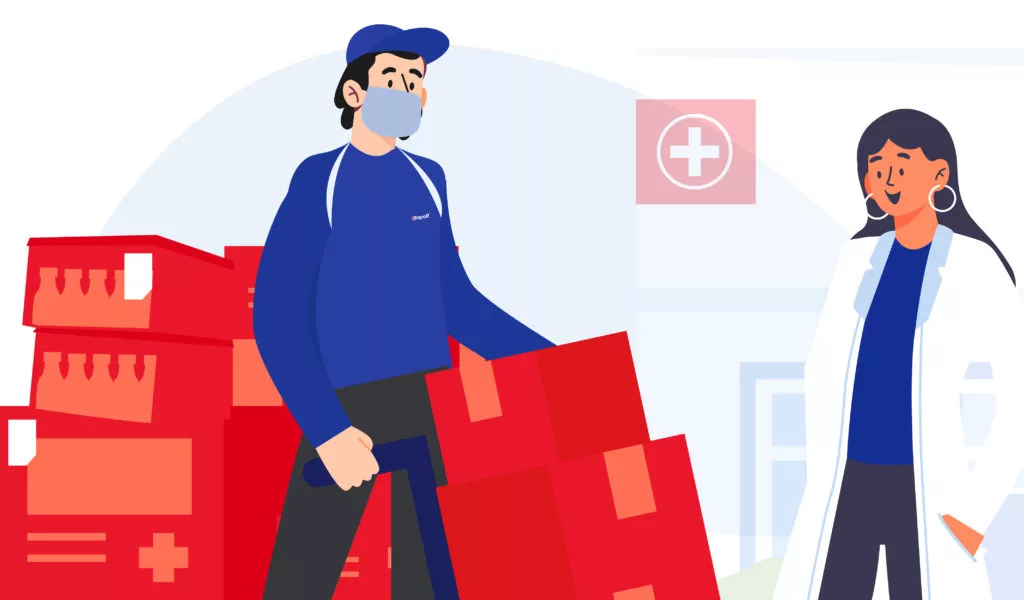
Dropoff is uniquely positioned to be your medical courier, continuously using best practices to deliver every item from point A to point B safely and in perfect condition. Our drivers are background-checked, HIPAA-compliant, and in uniform for utmost patient security.
When choosing a medical courier, take into consideration all the points we discussed above.
Below is a checklist of what Dropoff offers compared to traditional couriers.

Bottom Line
In order to ensure timely and accurate deliveries, it is important for medical couriers to adhere to the best practices in the industry. At Dropoff, we take pride in our commitment to providing excellent service that meets the high standards of the medical courier community.
Our team of experts is here to help you get your deliveries where they need to go, on time. If you want to know how we can help you streamline your medical courier process, talk with a Dropoff expert today.

